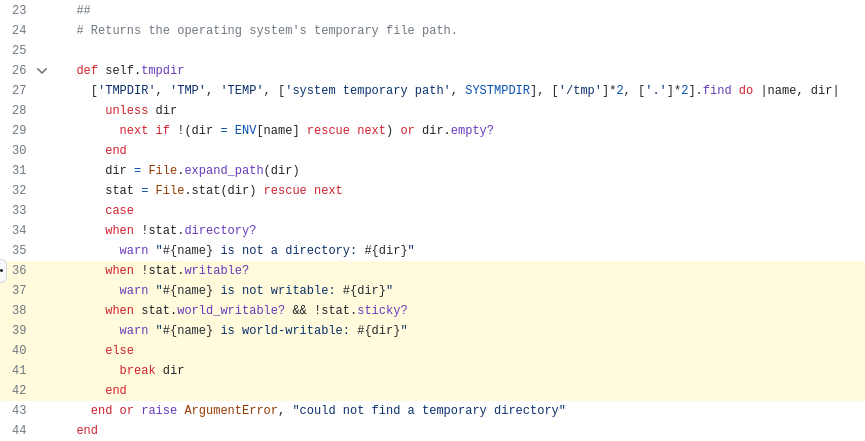About Read-Only Containers, Ruby and EmptyDir
I’m running the majority of my workloads on Kubernetes these days, including my Mastodon instance. For many years I’ve been running Mastodon in read-only mode for the container filesystem. However, I somehow missed the Sidekiq container.
The problem
This became obvious, when someone threw a question to #mastoadmin about it.
Is it possible to make
#mastodonwrite its temporary files to somewhere else other than/opt/mastodon?
/opt/mastodon, for those unaware, is the working directory and application directory of Mastodon in the official Mastodon containers. Why would the app use the current working directory instead of /tmp/ for temporary files?
It turns out, it doesn’t. At least not by default and when the container filesystem is writeable. However, when adjusting the securityContext of the container to contain readOnlyRootFilesystem: true, media processing fails, as it tries to write temporary files.
No problem, that’s why emptyDir exist. Mounting an emptyDir volume to /tmp should solve it, however, it doesn’t.
Instead of using /tmp, suddenly mastodon tries to write its temporary files to /opt/mastodon or rather the current working directory. Somehow there was a fallback to the current working directory, somewhere in the stack and it was triggered. Diving down into the stack, it became apparent, that it’s actually just the paperclip dependency that causes the issue, and even further down, it turns out, it’s Ruby itself.
It turns out, Ruby assesses temp directories for suitability before using them:
One of the criteria is that it’s world writeable with a sticky bit or not world writeable at all. And here emptyDir comes back into play. emptyDirs in Kubernetes are creating world writeable directories without sticky bit and therefore this check fails and ruby falls back to its fallback directory, the current working directory.
So in Ruby emptyDir is unsuitable for temporary files created using the native API.
The solution
Today I scrolled through #mastoadmin and came back across the conversation about the problem. And today, I knew how to solve it! Meet Generic Ephemeral Volumes!
Generic Ephemeral Volumes are Kubernetes Persistent Volume Claims, that only exist for the lifetime of a Pod and are only attached to this Pod. PVCs have the nice benefit, that other than emptyDir they aren’t mounted with world-writeable permissions, but rather just your regular fsGroup shenanigans.
So the solution to the problem of emptyDir being unsuitable for ruby temporary files is to use generic ephemeral volumes, to create PVCs that can be mounted under /tmp and work like a /tmp directory. Be aware, they do not share the exact attributes and capability of your regular /tmp directory, but for this use-case, they are good enough.
PS: If you are curious about how I’m running Mastodon, you can have a look at the Helm Chart.
Addendum
Following up on the conversation mentioned above, I dove into the kubelet source code¹ ² ³, to figure out how the kubelet creates it’s emptyDir. There I learned that the behaviour with forced 0777 only exists for directory-based emptyDir. Therefore if you don’t want to use Generic Ephemeral Volumes, you can also just use in-memory emptyDir:
- name: tmp
emptyDir:
medium: Memory
And after figuring that out, I decided to check the issues tracker, turns out, it’s a well-known bug, that is probably becoming a wontfix.

